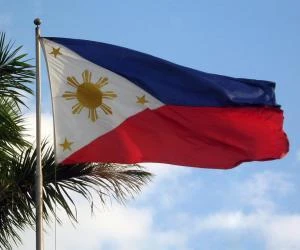PAGCOR clears POGOs for partial return to business

The Philippine Amusement and Gaming Corporation (PAGCOR) has cleared Philippine Offshore Gaming Operators (POGOs) to resume operations, in order to generate funds for the country’s government to combat the novel coronavirus (Covid-19) pandemic.
POGOs, which were forced to shut down from 18 March as a result of the crisis, will be permitted to operate, albeit under “stringent conditions for both compliance with tax obligations and employee safety.
Before each operator is allowed to resume, POGOs and their service providers must update and settle all tax liabilities. They must also be up to date with regulatory and licenses fee payments, and pay any performance bond or penalties due to PAGOR.
Each operator will also be expected to have paid regulatory fees for April, and show they have put safety protocols to protect staff from Covid-19 infection. POGOs will therefore only be allowed to have 30% of staff working per shift, and provide shuttle services taking employees from work to home and back.
Staff will also have their temperature tested upon entry to the offices, while social distancing controls, proper sanitation and disinfection of premises, and mandatory wearing of face masks, will also be used to prevent the spread of the virus.
Furthermore, employees infected with Covid-19, including those who are suspected of having it, will not be allowed to work. Vulnerable groups such as the sick, seniors, pregnant women and those with weak immune systems or underlying medical conditions will not be permitted to return to work.
“Even with the partial resumption of POGO operations, we will put premium on the safety of their employees, and the gaming industry as a whole,” PAGCOR chairman and chief executive Andrea Domingo said.
“While we recognise their huge contributions to nation-building, and their great viability as a funding source in these difficult times, we still have to practice extra precaution in striking a balance between health and economic benefits.”
Domingo said that funding from the online gaming sector would provide additional funds to help the Philippines tackle the crisis, noting that they provide 2% of gross gaming revenue as regulatory fees.
With efforts to stamp out tax evasion, this contribution has steadily increased in recent years, rising from PHP73.7m in 2016 to €5.73bn (£90.4m/€103.1m/$113.3m) in 2019. In Q1 2020 alone, PAGCOR noted, POGOs had already contributed PHP1.80bn in regulatory fees alone.
These remittances form part of PAGCOR’s contributions to the National Treasury and other beneficiaries, including the Universal Healthcare Law, which relies on gaming for funding.
Furthermore, by allowing POGOs to return to work, as many as 31,556 jobs in the country would be supported, while the resumption would also aid the real estate industry, a sector that has earned PHP25bn from operators’ leaseholds and rent payments alone.
However, the country’s law enforcement agencies would continue to monitor POGOs for any compliance breaches, with monitoring carried out by PAGCOR’s Compliance Monitoring and Enforcement Department, supported by other government agencies.
Earlier this week PAGCOR revealed that gambling revenue had fallen 5.7% year-on-year to PHP17.22bn in the three months to 31 March. With a decline in outgoings slower than that of revenue, total profit for the quarter dropped 49.9% to PHP777.4m.
The land-based industry that PAGCOR oversees has been shut down since 15 March as a result of the crisis, with the lockdown recently extended to 15 May.
